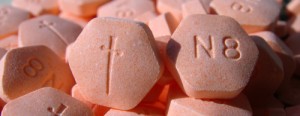 With the holiday season in full swing, I recently did a guest blog post for SoberNation.com called “Gearing up for the Holidays,” which discusses how to keep sobriety and joy during the holiday season.
With the holiday season in full swing, I recently did a guest blog post for SoberNation.com called “Gearing up for the Holidays,” which discusses how to keep sobriety and joy during the holiday season.
“The holiday season can be a difficult time for anyone, especially someone in recovery or new to recovery. Aside from a schedule often riddled with trigger-filled parties, there is the added stress of money, work, and family this time of year. Money seems to be tight, deadlines loom before the first of the year, and families (in which relationships can be strained from years of alcohol and drug abuse) are expected to come together and be merry. It can be a recipe for disaster, which is why you have to prepare!” To read the rest of the article click over to the Sober Nation’s website here: http://www.sobernation.com/gearing-holidays/.







